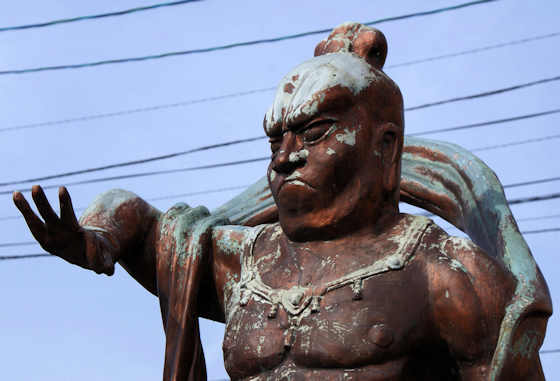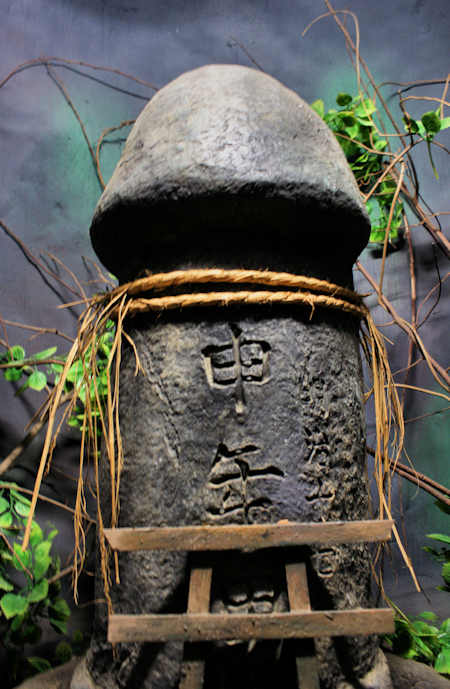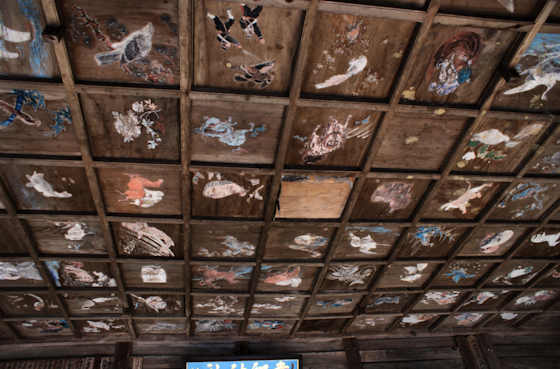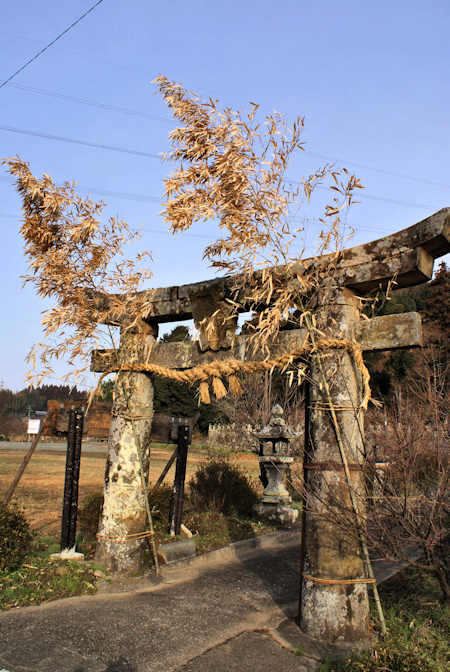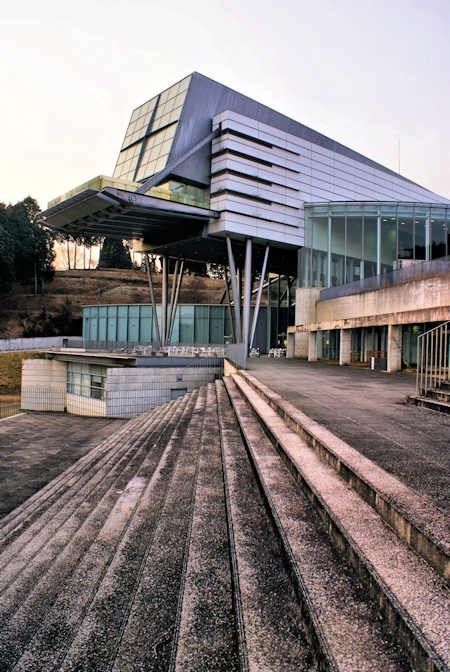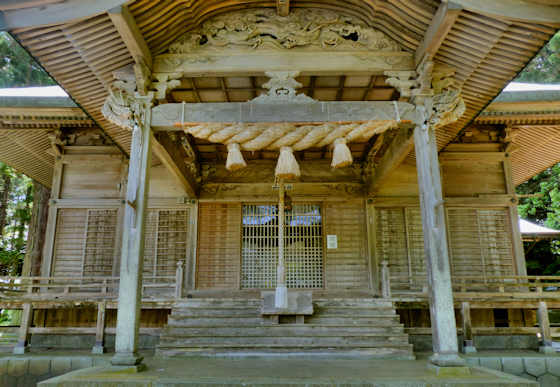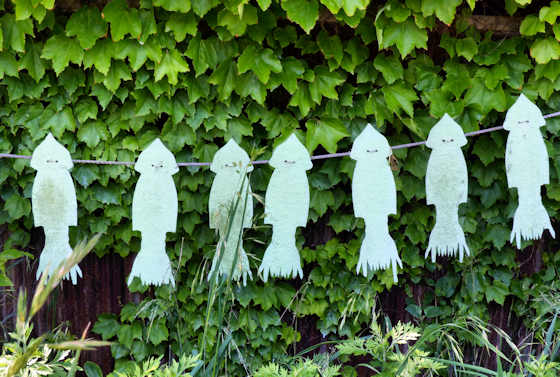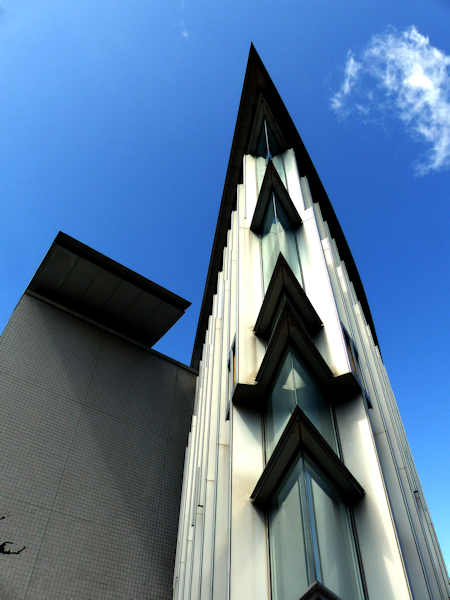Just after crossing from Takeo into Ureshino I reached the place I had made a 15 kilometers detour to see, the Ureshino Hihokan.
With a large, golden statue of Kannon, the "goddess of mercy", flanked by two Nio guardians, one might think it was a Buddhist temple..... the modern concrete structure certainly had elements of traditional architecture,....
But sitting to one side of the entrance was a 4 metre long wooden phallus that indicated the true content of the building.
A Hihokan is a "museum of hidden treasures", and is a euphemism for a kind of museum devoted to sex... Hihokan were mostly built in the 1980's, and are mostly associated with hot spring resorts which enjoyed a boom at that time. However, hihokan are disappearing as quickly as they appeared, and this one was due to close down a month after I visited.
Actually, a large part of the exhibits were religious in nature. Fertility shrines can still be found in Japan featuring phalli, although the number is much reduced from historical times and the introduction of "Victorian" prudishness.
There were many replicas of such shrines. I myself seek out these vestiges of traditional culture and am still finding them hidden away on my explorations around the backcountry of Japan. There are a couple of big ones that are very famous, but they are not really typical. The typical fertility shrine is quite small but well-visited. A few weeks earlier on this pilgrimage, I visited
Shibatatehime Shrine in Kumamoto.
Praying for a baby is the most common point of many of these "fertility" shrines, but some exist for other reasons. Up near Matsue is one where the big wooden phallus was prayed to for the relief of sexually transmitted diseases. I recently revisited another in Fukuoka, a very popular shrine, that is famous for answering prayers for sexual "vigor". A kind of spiritual viagra if you will.
There were a few examples of Shunga on display. Shunga was erotic and pornographic woodblock prints that were enormously popular during the Edo Period but which were suppressed and ignored, in Japan at least, until relatively recently following the aforementioned adoption of Victorian prudishness in the Meiji Period.
There was a small display of a variety of sexual paraphernalia like chastity belts, bondage gear, sex toys, etc, but the most intriguing, and to my mind wonderfully kitsch, were the animatronic displays that no longer worked, which I will cover in the second part......
The previous post in this series on the Kyushu Pilgrimage was
the nearby Kifune Shrine. The previous post in the series of Disappeared Japan was
Space World.
